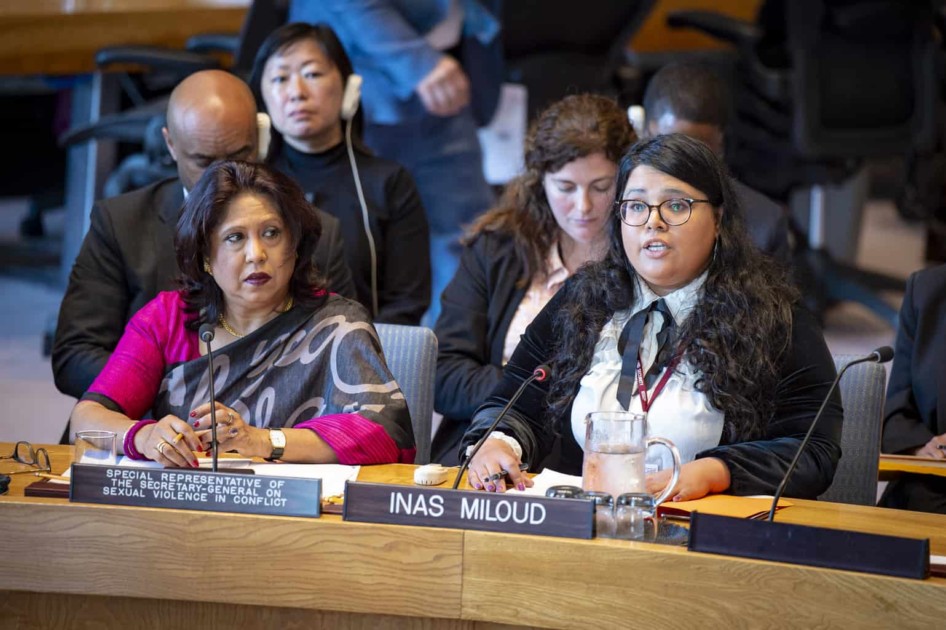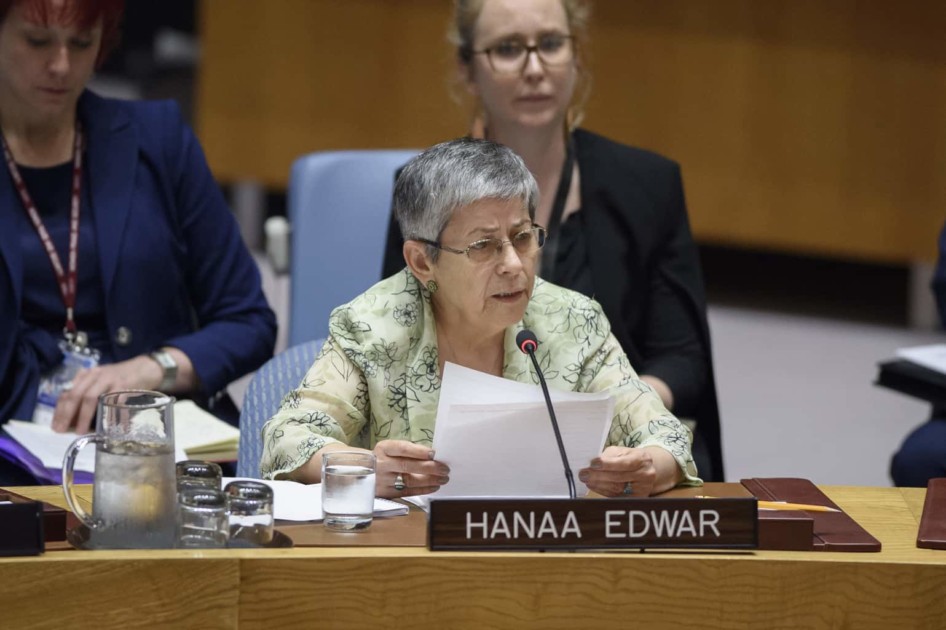Protection of Civilians
Protection broadly encompasses activities aimed at obtaining full respect for the rights of all individuals in accordance with international law, including international humanitarian, human rights, and refugee law. During protracted armed conflict, civilians, particularly women, have increasingly become the victims of violence and insecurity. In 1999, the Security Council first requested a dedicated report by the UN Secretary-General on PoC, followed by the adoption of Security Council Resolution 1265 (1999), which recognized the need for protection against specific threats targeted at civilians in armed conflict and outlined operational obligations to highlight ways to protect civilian populations experiencing armed conflict.
The NGOWG WPS focuses specifically on women’s protection in armed conflict, requesting the Security Council to recognize the broad range of ways women are affected by conflict and to harness international law to mandate needed protection in peacekeeping missions. The Council is also requested to focus on how to concretely implement existing norms related to the protection of civilians, including through the resources available in the Protection of Civilians Aide Memoire (S/PRST/2010/25), to ensure women’s protection. The NGOWG WPS advocates for the deployment of Women’s Protection Advisers as well as the provision of a number of services to female survivors of conflict, including psychosocial services for survivors of sexual violence.
Protection of Civilians
Protection broadly encompasses activities aimed at obtaining full respect for the rights of all individuals in accordance with international law, including international humanitarian, human rights, and refugee law. During protracted armed conflict, civilians, particularly women, have increasingly become the victims of violence and insecurity. In 1999, the Security Council first requested a dedicated report by the UN Secretary-General on PoC, followed by the adoption of Security Council Resolution 1265 (1999), which recognized the need for protection against specific threats targeted at civilians in armed conflict and outlined operational obligations to highlight ways to protect civilian populations experiencing armed conflict.
The NGOWG WPS focuses specifically on women’s protection in armed conflict, requesting the Security Council to recognize the broad range of ways women are affected by conflict and to harness international law to mandate needed protection in peacekeeping missions. The Council is also requested to focus on how to concretely implement existing norms related to the protection of civilians, including through the resources available in the Protection of Civilians Aide Memoire (S/PRST/2010/25), to ensure women’s protection. The NGOWG WPS advocates for the deployment of Women’s Protection Advisers as well as the provision of a number of services to female survivors of conflict, including psychosocial services for survivors of sexual violence.
Current and Past Recommendations to the UN Security Council (Monthly Action Points)
The NGO Working Group (NGOWG) urges all UN leaders and member states participating in the Security Council Open Debate on 9 November to review obstacles to enhancing accountability for violations of international human rights, and of humanitarian and refugee law, in particular against women and girls in conflict-affected situations. Such obstacles relate to:
1) Yemen: SCR 2014 (2010) calling for the signature and implementation of a power-transfer deal on the basis of the Gulf Cooperation Council initiative (GCC) could shield President Ali Abdullah Saleh and his inner circle from any possibility of being investigated or brought to trial. The GCC must remove the immunity clause from its transition proposal.
2) Sudan: UN member states must be held to account for their failure to arrest Sudanese President Omar al-Bashir, charged with crimes against humanity, war crimes, and genocide, and surrender him to the International Criminal Court (ICC).
3) Afghanistan: Judicial and security sectors still lack the personnel, infrastructure, training and political will to respect, protect and promote human rights. Women are insufficiently represented among the police force and judiciary. Most Afghans, and in particular women, have difficulty accessing the formal judiciary courts and legal assistance. Some 80 percent of disputes rely on informal tribal councils, which abuse fair trial rights and are often discriminatory against women.
The NGO Working Group (NGOWG) urges all UN leaders and member states participating in the Security Council Open Debate on 9 November to review obstacles to enhancing accountability for violations of international human rights, and of humanitarian and refugee law, in particular against women and girls in conflict-affected situations. Such obstacles relate to:
1) Yemen: SCR 2014 (2010) calling for the signature and implementation of a power-transfer deal on the basis of the Gulf Cooperation Council initiative (GCC) could shield President Ali Abdullah Saleh and his inner circle from any possibility of being investigated or brought to trial. The GCC must remove the immunity clause from its transition proposal.
2) Sudan: UN member states must be held to account for their failure to arrest Sudanese President Omar al-Bashir, charged with crimes against humanity, war crimes, and genocide, and surrender him to the International Criminal Court (ICC).
3) Afghanistan: Judicial and security sectors still lack the personnel, infrastructure, training and political will to respect, protect and promote human rights. Women are insufficiently represented among the police force and judiciary. Most Afghans, and in particular women, have difficulty accessing the formal judiciary courts and legal assistance. Some 80 percent of disputes rely on informal tribal councils, which abuse fair trial rights and are often discriminatory against women.
Relevant Resources









